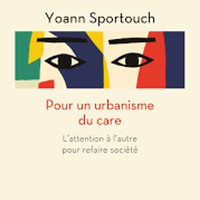

#18170
Mentioned in 3 episodes
L'Utopie
Book • 1715
Published in 1516, 'Utopia' by Thomas More is a frame narrative that describes a fictional island society.
The book is divided into two parts: the first part is a dialogue between More, his friend Peter Giles, and the traveller Raphael Hythloday, who describes the society of Utopia.
Utopia is depicted as an island with 54 identical cities, where there is no private property, and goods are stored in warehouses for common use.
The society is characterized by a welfare state, free education, and a strict work ethic, with all citizens working six hours a day.
The book critiques the social and political practices of More's time and prefigures some aspects of socialist and communist theories.
The book is divided into two parts: the first part is a dialogue between More, his friend Peter Giles, and the traveller Raphael Hythloday, who describes the society of Utopia.
Utopia is depicted as an island with 54 identical cities, where there is no private property, and goods are stored in warehouses for common use.
The society is characterized by a welfare state, free education, and a strict work ethic, with all citizens working six hours a day.
The book critiques the social and political practices of More's time and prefigures some aspects of socialist and communist theories.
Mentioned by
Mentioned in 3 episodes
Mentionné par 



Philippe Bihouix

32 snips
Philippe Bihouix : « Dans le futur, nous serons fiers de savoir réparer les objets »
Mentioned by ![undefined]()


Thierry Paco

11 snips
Françoise Choay, philosophe de l’architecture et des villes - La Fabrique Urbaine #92
Mentionné par ![undefined]()


Aldo Bearzatto

Pour un urbanisme du care - La Fabrique Urbaine #90
Erwähnt von ![undefined]()


Jeannie Schneider

Futures Literacy mit Sarah und Jeannie vom Dezentrum
Mentionné par ![undefined]()


Géraldine Mosna-Savoye

Gérald Bronner, sociologue : "Lire Tocqueville m'a fait perdre ma naïveté sur la démocratie"
Mentionné comme une source d'idées sur les problèmes sociaux et la justice.

Simone Weil, Dieu sans le dogme 4/9 : Simone Weil, figure contestataire d'un dogme chrétien dominant
Fait référence à ce texte de Thomas Mann pour illustrer l'idée d'une société vivant au plus près de la nature.

Tahiti aux lumières de l’Europe
Mentionné par ![undefined]()


Hugo Cotton

E23 Le revenu universel : une utopie ?




